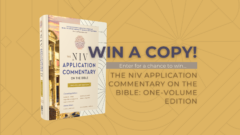
Today we draw one week closer to completing John Stott’s The Cross of Christ. After this week’s reading, we’ve got just two remaining before we’ve finished the book and wrapped up another reading project. Thank you for bearing with me last week when I just wasn’t able to get things done on time.
Self-Understanding and Self-Giving
You remember that last week’s chapter was about the community of the cross being a community of celebration. This week Stott shows that the community of the cross is also a community of self-understanding. “This may sound like a reversion to individualism. But it should not be so, since self-understanding is with a view to self-giving. How can one give what one does not know one has? That is why the quest for one’s own identity is essential.” That makes good sense to me!
This means that in chapter 11 Stott asks and answers questions like these: “Who are we? How should we think of ourselves? What attitude should we adopt toward ourselves?”
Stott begins by contrasting today’s typically low self-image with the human potential movement. Looking at the biblical command to love your neighbor as yourself, he says “Many Christians seem to have allowed themselves to be sucked into this movement under the false impression that the Mosaic command, endorsed by Jesus, that we love our neighbor as ourselves is a command to love ourselves as well as our neighbor. But it really is not.” Three arguments put that silliness to rest.
But this leaves us asking, “How should we regard ourselves? How can we renounce the two extremes of self-hatred and self-love, and neither despise nor flatter ourselves? How can we avoid a self-evaluation that is either too high or too low, and instead obey Paul’s admonition ‘think of yourself with sober judgment?’ (Rom 12:3)? The cross of Christ supplies the answer, for it calls us both to self-denial and to self-affirmation.” Stott begins to look at the death of Jesus under the headings of “representative” and “substitutionary.”
Introductory matters aside, Stott now looks at the topic under a series of headings. I enjoyed his discussion of the 3 deaths and resurrections the Bible speaks of: the death to sin and life to God, the death to self (called variously taking up the cross, or denying, crucifying or mortifying ourselves), and the carrying about in our bodies the dying of Jesus so that the life of Jesus may be revealed in us. Stott points out that the first death is legal, the second is moral and the third is physical. That section is worth reading and reflecting upon if you haven’t done so yet!
Let me give you a pair of excellent quotes from a bit later in the chapter:
Whatever we are by creation we must affirm: our rationality, our sense of moral obligation, our sexuality (whether masculinity or femininity), our family life, our gifts of aesthetic appreciation and artistic creativity, our stewardship of the fruitful earth, our hunger for love and experience of community, our awareness of the transcendent majesty of God, and our inbuilt urge to fall down and worship him. All this (and more) is part of our created humanness. True, it has been tainted and twisted by sin. Yet Christ came to redeem it, not to destroy it. So we must gratefully and positively affirm it.
He goes on…
Whatever we are by the Fall, however, we must deny or repudiate: our irrationality, our moral perversity, our blurring of sexual distinctives and lack of sexual self-control, the selfishness that spoils our family life, our fascination with the ugly, our lazy refusal to develop God’s gifts, our polluting and spoiling of the environment, the antisocial tendencies that inhibit true community, our proud autonomy, and our idolatrous refusal to worship the living and true God. All this (and more) is part of our fallen humanness. Christ came not to redeem this but to destroy it. So we must strenuously deny or repudiate it.
There is much more value in this chapter, and I will leave it to you to dig through it for treasure.
Next Week
For next week please read chapter 12, “Loving Our Enemies.”
Your Turn
The purpose of this program is to read these books together. If you have something to say, whether a comment or criticism or question, feel free to use the comment section for that purpose.









